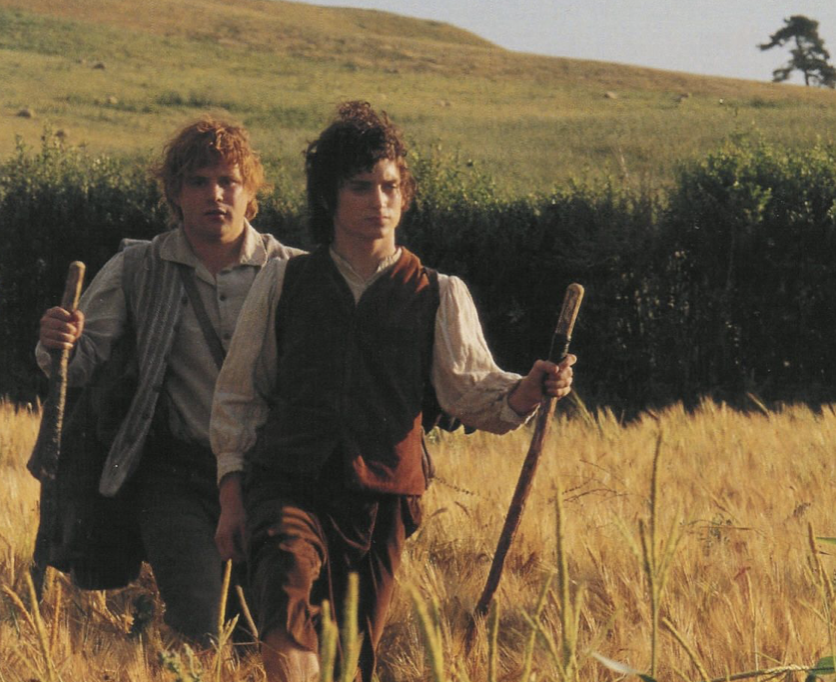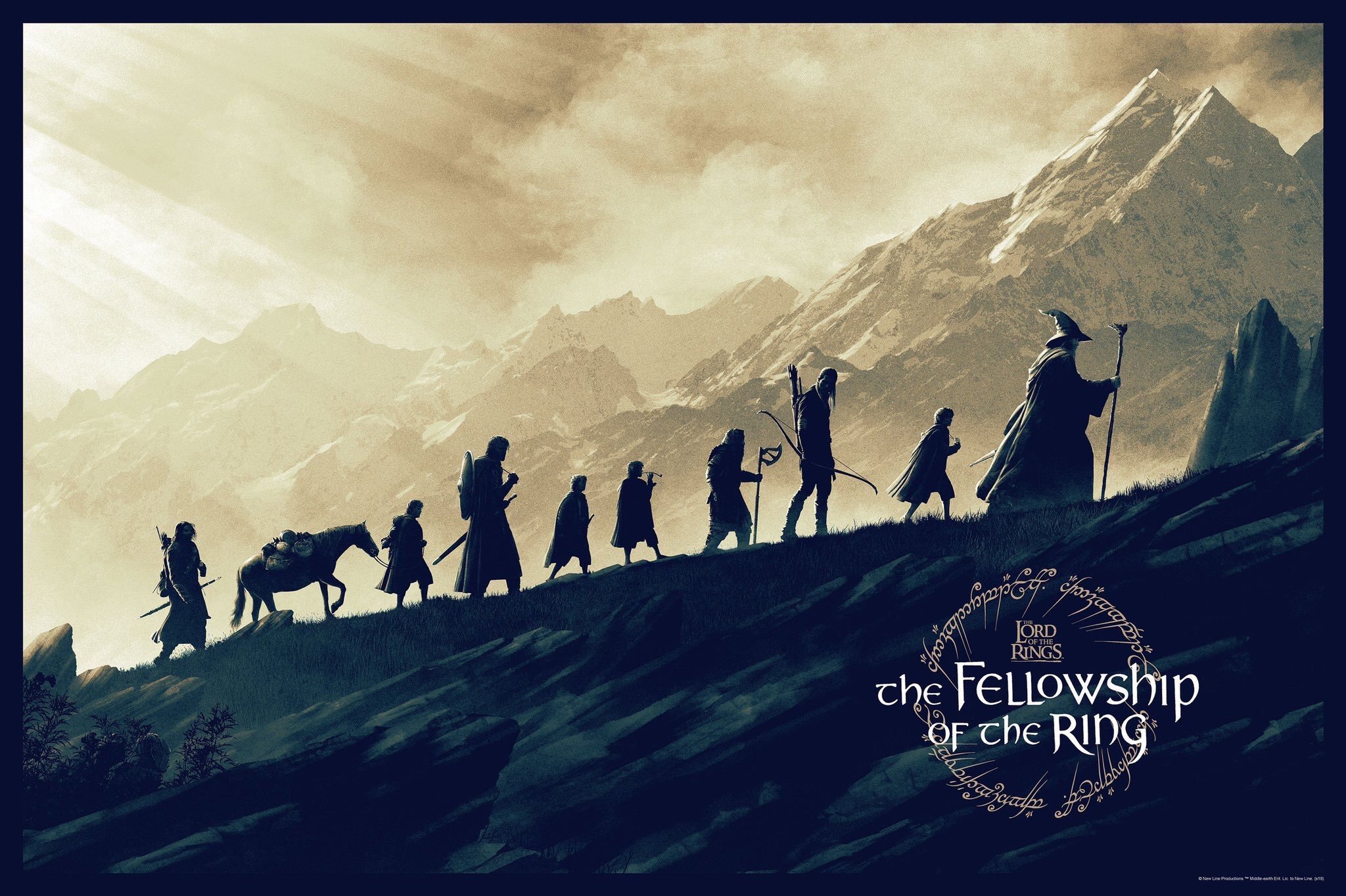Dear Frodos, Five Reasons Why You Should Write that Grant Proposal
Published:
Life seems much more colorful if I imagine that I am on an adventure, not as epic as the one Frodo set out to, but an adventure nonetheless, with goals to achieve and fellows to meet on the way. Being a postdoc is definitely a one at the very least, moving to a new country, starting my research in a domain that is entirely new to me, and trying to adjust to this brand new life during a pandemic shortly after.
One of the things that helped me a lot to strengthen my integration was writing grant proposals. Might sound totally unrelated, but hear me out. If you think of this as a process of building your own fellowship (ha!), it will hopefully make sense. Whether you’ll get the grant in the end or not, I will list you five reasons you should write that proposal.

Image credit: @youtube
1. Obviously science
Either you have everything mapped out about the science you are excited to do or the steps are still a little bit vague, this will be an amazing opportunity for you to think about different aspects of your project and how you are going to implement them.
Prior to writing, I had my project idea broken into rough work packages in my mind and thought, Well, this should work, right?. Thinking and writing are two different processes, though. While thinking, we let our imagination run wild by connecting one dot to another, and sometimes jumping over a bunch. But in the latter, precision becomes the most important measure if one wants to convey those abstract thoughts to others. With writing, vital details of ‘how’ and ‘when’, which we might have overlooked during the thinking process, surfaces and solidifies the imagination.
When you read what you write, you immediately realise some parts require more attention than the others, prodding yet another thinking process, prompting many hows, whys, and whens. You might also realize the potential risks, for instance the possibility of a work package yielding to an outcome different than you expected, and think about what kind of actions you can take in such situations to make sure your project runs smoothly regardless. And this continues, an iterative process of thinking and writing, until you are satisfied with the final version. And that final version of your project is probably quite different than when you first started writing. However slight/big that difference it’ll be, you should feel proud, now that you have a solid project in your hands rather than an idea.
2. Self-reflection
As we are on an adventure, always the next steps in our minds, we rarely pause and think about how far we have come. The grant proposals, though, are not only about the science, but also about the person behind the science and the journey that brought them to this day. With the great responsibility of the future on their shoulders and many challenges ahead, Frodo and Sam rarely stopped and appreciated, as two hobbits who didn’t even think of crossing their own borders before, how far away from the Shire they were!
The process of preparing a grant application gives you moments to look back and think about the time you spent in front of the computer (or behind the lab bench), the experiments you failed, the little victories you had, all mingling into the path of being a part of something bigger than you, and the last but not the least, the determination you put into what you did. Although subtly, the process urges you to appreciate and to expect more of yourself. It is not everyday a Hobbit sets out their feet onto the unknown lands! This process is also a great opportunity to put a little more thought about what you would like to do different than you did past, what you would like to improve and put more effort into, in other words, looking into your past-self and ask about what kind of person you are now and desire to be in the future.
3. Future goals
Essentially, carrying out the project implicitly includes a plan for the immediate future, gaining experiences in scientific and soft skills, establishing connections and hopefully getting published and presenting the work you are proud of in prestigious venues. But some grants might wish to hear more, and explicitly ask, what will happen to you afterwards? For instance, MSCA-IF has a whole section dedicated to detail how much the proposed project will shape the researcher’s future. Even if the grant format does not require you to actively write about it, I think this is a complementary process to the self reflection point above.
Title says future goals, but what I mean is more to have an idea of the things you’d like to do in the future and have options (or backup plans so to say) than to try and map out the details of the next ten years. Because who knows what will happen in the next few years, honestly. The pandemic has been a tragic exhibit of the fact that unprecedented things can happen anytime and anywhere in the world. But that also does not mean we have to expect the worst, because most of the time, we also don’t know what kind opportunities the life would throw our ways. I believe, having an idea of the paths you might like to explore in the future is a good starting point. Then you’d know what kind of skills you might need and you can invest in them while it’s still not expected of you to decide between those paths.
I think it is perfectly normal to find ourselves in places that are different than the ones we envisioned ourselves in the beginning, because it is life. Aragorn never envisioned himself to become the King of Gondor when he set out his own journey with the fellowship, right?
4. Networking
Connecting with people is the immediate output of writing a grant application, or maybe in other words, gathering the fellows of your fellowship that’ll become your strength during this chapter of your journey. Whether you get the grant or not, the network you established would hopefully stay with you, and well, isn’t that amazing on its own? So how do we connect while writing, you might ask? Let me try to explain.

Image credit: @cakes_comics
It all starts with meeting with your advisor, probably more frequently than your regular schedule, to discuss the potential of your research idea and the grants that could be suitable for your project. Next, you connect with that colleague you’d heard of applying to the same grant, and with the people in administrative positions in your institution (e.g. Grant Offices etc.) who could give you pointers about the process that could save you lots of time. Once you actively start writing the project proposal and identify the variety of requirements (e.g. data, analysis, experiments), you might realise a potential for collaborations within or outside of your institution. And finally once you have finished writing, you might want to ask some of your colleagues for feedback on your proposal. Some of these interactions would probably not be established until a later time (or not at all) if you haven’t decided to write that proposal - much like the four hobbits who found themselves in the company of the amazing people of the Middle Earth.
5. Experience
As the journey goes on, there will be many project proposals to write and grants to apply. Each attempt will be another step closer to the ultimate goal, whatever that is for you, as life has a way of awarding those who persist. At least that’s what I believe and what motivates me (I think Samwise Gamgee would also agree). Again, whether your attempt turns into an acceptance or not, you’d already have that one currency that never fails to pay off: the experience. In a relatively short amount of time, you’d have your idea turned into a project, connect with colleagues and have the opportunity to look into the past and the future, and celebrate yourself for who you are and who you’ll become.
Well, let Sam and Frodo finish this quite long blog post then.
“But I think, Mr. Frodo, I do understand. I know now. Folk in those stories had lots of chances of turning back only they didn’t. Because they were holding on to something.”
“What are we holding on to, Sam?”
“That there’s some good in this world, Mr. Frodo…and it’s worth fighting for.”
